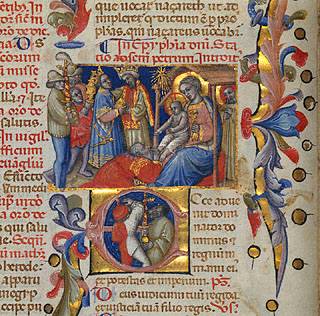 NBC has stirred up a lion's den of opposition to its new series, "The Book of Daniel." Set to air Jan 6 with a two hour premier, NBC ads promote the program with the teaser: "Sex. Drugs. Stolen money and martinis. Family can really test your faith." Imagine a series about a drug-addicted Episcopal priest; his alcoholic wife; his son, a 23-year-old homosexual Republican; his daughter, a 16-year-old drug dealing daughter; a 16-year-old adopted son who is having sex with the bishop's daughter; his lesbian secretary who is sleeping with his sister-in-law; and a very unconventional white-robed, bearded Jesus who talks to the priest. And to think that NBC wonders why it is considered controversial. "The Christian Post" offers this report on the conflict.
NBC has stirred up a lion's den of opposition to its new series, "The Book of Daniel." Set to air Jan 6 with a two hour premier, NBC ads promote the program with the teaser: "Sex. Drugs. Stolen money and martinis. Family can really test your faith." Imagine a series about a drug-addicted Episcopal priest; his alcoholic wife; his son, a 23-year-old homosexual Republican; his daughter, a 16-year-old drug dealing daughter; a 16-year-old adopted son who is having sex with the bishop's daughter; his lesbian secretary who is sleeping with his sister-in-law; and a very unconventional white-robed, bearded Jesus who talks to the priest. And to think that NBC wonders why it is considered controversial. "The Christian Post" offers this report on the conflict.Saturday, Dec. 31, 2005 Posted: 1:45:14PM EST
A television show that has yet to air and features an Episcopal priest as the main character is being opposed by one group, which says it objects to Hollywood’s focus on negative aspects of Christians and has called on supporters to contact the show’s sponsors to pull their advertising.
The program, “The Book of Daniel,” portrays the lives of one Episcopal priest and his family. The network airing the program, NBC, describes the relationship between the priest and his family as “loving, but challenging.” The American Family Association (AFA), which opposes the show, says the family is “deeply dysfunctional,” according to the L.A. Times.
The AFA objects to the portrayal of Christians on the program and is on a quest to identify its sponsors, and encourage conservative supporters to write letters to keep them from advertising.
“While we certainly recognize that Christians do have problems, and they have problems in their families, it seems that Hollywood consistently wants to focus on those types of Christians and those types of ministers – when the reality is that many, many more are hard-working," said AFA Spokesman Ed Vitagliano, according to Agape Press.
He said that the organization will be monitoring the program since it “appears to be yet one more show that's going to dog the Christian faith.
"The actor portraying the priest, Aidan Quinn, addressed potential objections, saying that they were misplaced.
If "Daniel" offends some Catholics, "I don't really care that much," he said, according to the Associated Press. "That's certainly not the intent. That's certainly not the truth. There are filters it (the show) goes through, including Jack's (the show’s creator) and mine."
Quinn said the show’s main character has good intentions but has a long way to go.
"It's a good thing Daniel started off so neurotic," he said. "He wants to be an evolved, spiritual man who takes care of his family. He's got miles to go before he sleeps."
The AFA claims it had sent nearly 400,000 thousand letters and e-mail message to NBC. However an NBC spokesman could only confirm that several hundred messages had been received, according to the L.A. Times.
“We’re confident that once audiences view this quality drama themselves, they’ll appreciate this thought-provoking examination of one American family,” said NBC in a press statement.
The network and the AFA have placed their emphasis on different aspects of the show.
The AFA’s description of the show’s characters included mentions of “a drug-addicted Episcopal priest; his alcoholic wife; his son, a 23-year-old homosexual Republican; his daughter, a 16-year-old drug dealing daughter; a 16-year-old adopted son who is having sex with the bishop's daughter; his lesbian secretary who is sleeping with his sister-in-law; and a very unconventional white-robed, bearded Jesus who talks to the priest.”
In a press statement addressing concerns about the show, NBC describes the family as the “Reverend Daniel Webster, an unconventional Episcopalian minister;” Peter, “his 23-year-old son, who struggles with the loss of his twin brother;” Grace, "his 16-year-old daughter who doesn’t try to push her father’s buttons but succeeds at it nonetheless;” Adam, "his 16-year-old adopted Chinese son, a handsome and cocky high school jock with a wicked sense of humor; a “loving wife” with a “fondness for mid-day martinis;” and an actor portraying Jesus, “whose frequent chats with Daniel serve to remind him of his strengths and weaknesses.”
The Mississippi-based AFA has previously called boycotts on Ford for advertising in gay publications, and similar measures on Target retail stores for not using “Christmas” in advertising and indoor displays.
Jason Davis
jason@christianpost.com
http://www.christianpost.com/

























